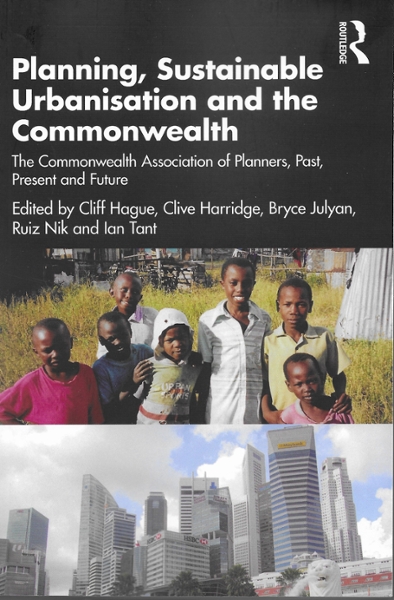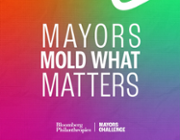Fifty years of the Commonwealth Association of Planners

25 August 2023
The Commonwealth has the potential to take a global lead on sustainable urbanisation and climate resilience. This is the key theme of a new book Planning, Sustainable Urbanisation and the Commonwealth: The Commonwealth Association of Planners, Past, Present and Future. The Commonwealth Association of Planners (CAP) has long been a key partner of CLGF in making the case for the importance of urbanisation as a challenge for the Commonwealth, and for the vital part that local governments have to play.
Sustainable urbanisation in the Commonwealth
In an introductory message in the book, the Commonwealth Secretary-General, Baroness Scotland, KC, reminds readers that the CHOGM in 2022 adopted a Declaration on Sustainable Urbanisation. This recognised that “the long-term trajectory of urbanisation across Commonwealth members will have important consequences for national economies and that by 2050, an additional 2.5 billion people will be living in the world’s towns and cities, almost 50% of them in the Commonwealth.”
On present trends, growing numbers of these new Commonwealth citizens will be living in slums. The UN Secretary General has warned that we are now halfway through the 2016 – 2030 Sustainable Development Goals period, but falling behind on delivery.
Effective local level planning
CLGF and CAP, with support from other Commonwealth organisations, had campaigned for more than a decade to get the importance of urbanisation recognised by Commonwealth governments. CAP has long argued that there can be no sustainable development without sustainable urbanisation, and no sustainable urbanisation without effective planning as part of good local governance.
As well as recounting the history of the first 50 years of CAP’s work, and shedding light on how Commonwealth civil society organisations cooperated to get urbanisation on Commonwealth agendas, the book looks to the future. It conveys the urgency now needed. A series of chapters make the connections between the climate emergency, rapid urbanisation, poverty, poor housing and ill-health.
Radical but practical measures are advocated. Communities are likely to need to be resettled as climate change ravages coastal areas, with small island states particularly vulnerable. With over 60% of the people in the Commonwealth under 30 years of age, the voices of young people need to be heard at all levels of government.
The book affirms and demonstrates the importance of the Commonwealth, but argues that it can and should do more. Leaders need to grasp that the way we build cities – and who we build them for - really matters. The legacies of colonialism, not least inappropriate planning legislation, must be addressed.
National urban policies
Urban infrastructure developed now (or not developed) has impacts across generations, affecting prosperity, health, biodiversity and the emissions that drive climate instability. National urban policies are needed, but leadership and delivery at local level are also crucial.
Civil society and community leaders are a vital resource, especially where formal state structures are weak. Governments and the inter-governmental organisations of the Commonwealth need to work with them.
Specifically, the book proposes:
- Commonwealth Fund for Technical Cooperation funding for sustainable urbanisation projects;
- A Commonwealth Urban Observatory, with a hub in Asia or Africa, to evaluate and share practice;
- A meeting of Commonwealth Sustainable Development Ministers every two years in the wings of the Word Urban Forum; and
- Pump-priming a system of Commonwealth Planning Aid, mobilising volunteers and information technology to train “barefoot planners”.
The message is clear. As Cliff Hague from the UK and Christine Platt from South Africa write, “Faced with a complex, multi-faceted world, where everything affects everything else, the public policy response needs to be smarter, better integrated and more than ever to be inspired by the core Commonwealth values such as human rights, democracy, international peace and security and tolerance and understanding.”
CLGF Secretary-General, Ms Lucy Slack, said: "CLGF is pleased to endorse this publication in support of our partnership organisation, the Commonwealth Association of Planners. We will only achieve our goals, most notably sustainable urbanisation and development, by working collaboratively and in a joined up way. We look forward to progressing our advocacy work with CAP."
To obtain your copy:
Planning, Sustainable Urbanisation and the Commonwealth: The Commonwealth Association of Planners, Past, Present and Future, edited by Cliff Hague, Clive Harridge, Bryce Julyan, Nik Ruiz and Ian Tant is published by Routledge. Enter EFL02 at checkout to get a 20% discount before 1 October.
Back to News





